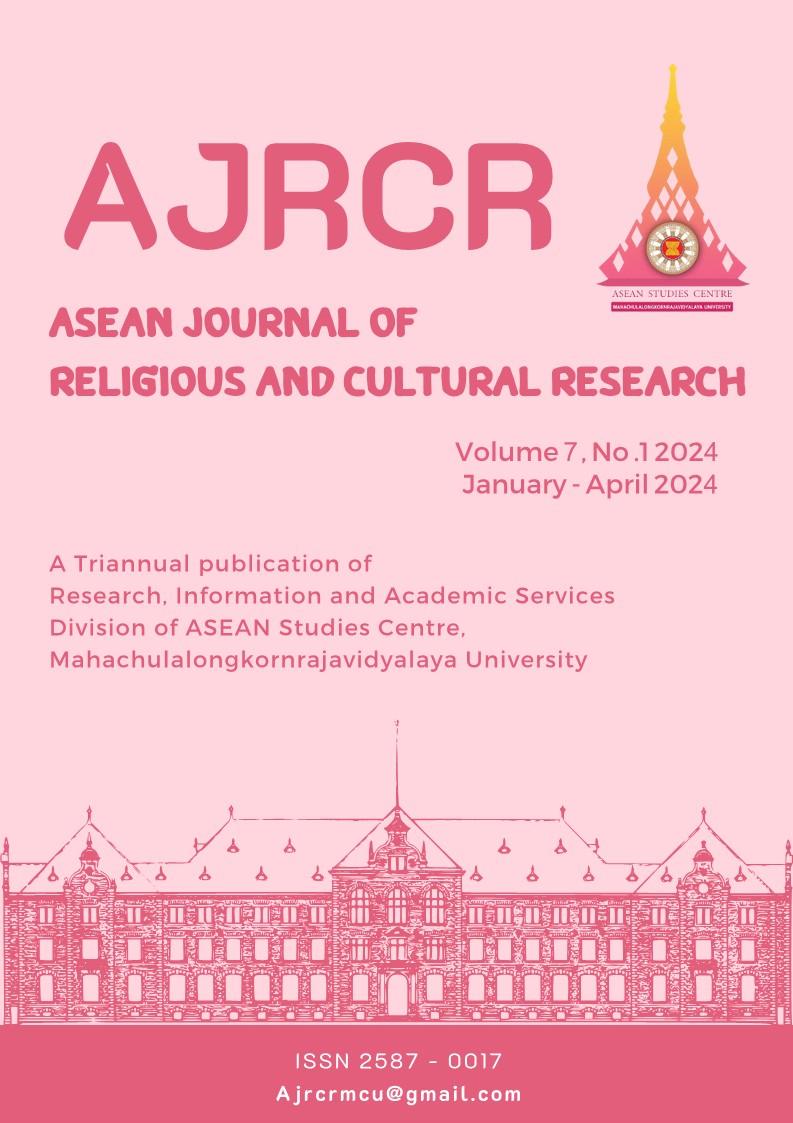Applying the Principle of Buddha’s Teaching from the Buddha-jaya-maṅgala Gāthā to Promote a Growth Mindset for Executive in the Era of Change
Keywords:
Buddhadhamma, Buddha-jaya-maṅgala Aṭṭhagāthā, Growth Mindset, Executives, Era of ChangeAbstract
Buddhism has been an important part of shaping Thai society for a long time. The relationship between Buddhism and Thai society is profound and can be divided into many dimensions that demonstrate the importance of religion in daily life. The principles taught in Buddhism, such as Mettā (loving-kindness), Karuṇā (compassion), sympathetic joy, knowing when to lose (having sporting spirit; Sportsmanship; Gamesmanship), not harming others, and letting go, play an important role in determining the values and behaviors of Thai people. Buddha’s Dhamma promotes peaceful coexistence in society and help create good relationships between individuals at the family, community, organization, and society levels. In addition, Buddhism plays an important role in politics and society. Monks and temples are important centers for promoting culture, education, creating peace, and harmony in society in both normal and crisis situations. Therefore, Buddhist principles play an important role in helping to solve problems and promote understanding among various parts of the community and society. This article aimed to present the application of Buddhadhamma from the Buddha-jaya-maṅgala Aṭṭhagāthā to promote a growth mindset. The Buddha-jaya-maṅgala Aṭṭhagāthā is a prayer that Buddhists in Thailand are familiar with. The main content is about the auspicious victories of the Buddha from all 8 events during his life. The chant aims to praise the Buddha's auspicious victory or victory by using morality to solve problems and get through them smoothly. In the dimension of daily life of Buddhists, chanting is the use of sacred words that have power over the mind, both praising the Triple Gem; Buddha, Dhamma, and Saṅgha, and applying morality as a growth mindset in daily life.Buddhadhamma






